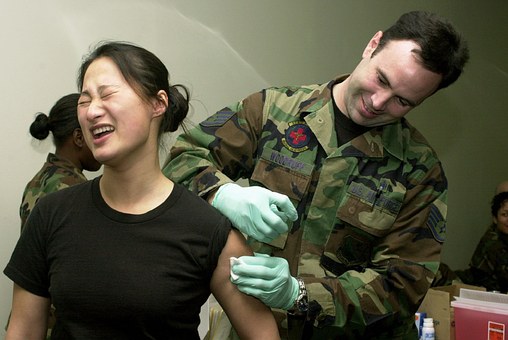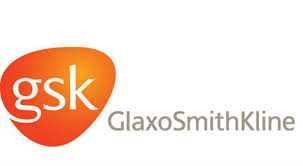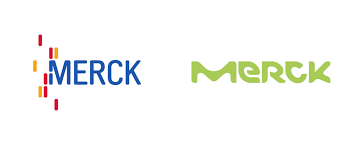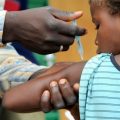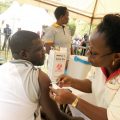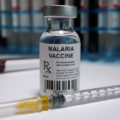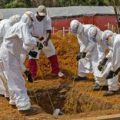Ebola virus disease (EVD), is a viral hemorrhagic fever of humans caused by ebolaviruses. The Signs and symptoms of Ebola disease typically start between two days and three weeks after contracting the virus with a fever, muscular pain, headaches and sore throat. This is usually followed by, vomiting, diarrhea and some people begin to bleed both internally and externally after the organs of the body become affected. The Ebola virus was first identified in 1976 and there are currently four known strains of the virus they are:
Ebola Zaire
Ebola Sudan.
Bundibugyo virus.
Taï Forest virus
The Zaire Ebola virus is the most lethal of all the known strains of EVD-causing viruses, and is responsible for the highest number of outbreaks and deaths worldwide .Ebola Vaccine development began in the late 1970s: results from a test of inactivated Ebola vaccine in guinea pigs were published in Lancet in 1980. However, because EVD outbreaks are rare and have, until 2014, been controlled quickly, commercial vaccine manufacturers have demonstrated little urgency in advancing Ebola vaccines through clinical trials. That changed in 2014 following unprecedented outbreak which ravaged many parts of West Africa. Several vaccines previously tested only in animals are being fast-tracked into Phase 1 clinical trials. The two main Ebola vaccine are:
GSK Chimpanzee Adenovirus Vector Ebola Vaccine
The GSK Ebola vaccine contains an attenuated adenovirus which deliver key Ebola antigens to human cells eliciting a variety of diseases which are safe and have been studied as vaccine vectors. The GSK Ebola vaccine is a monovalent vaccine which offers protection from Ebola Zaire only.
Merck/NewLink Genetics Recombinant Ebola Vaccine.
This vaccine contains an attenuated vesicular stomatitis virus, a virus similar to the rabies virus, belonging to the Rhabdoviridae family. Vesicular stomatitis virus (VSV) can infect humans though this is a self-limited infection. This vaccine is also a monovalent Ebola vaccine targeted at the Ebola Zaire or EBV.
Johnson & Johnson Ebola Vaccine
Johnson & Johnson Ebola Vaccine scheme has two-phase strategy which starts with direct exposure to DNA (the “prime”). This first dose of the vaccine uses a DNA vaccine that primes the immune system to make Ebola Zaire and Ebola Sudan surface proteins. This is followed by offering the same or similar antigen in a virus that does not replicate well in human tissue (“the boost”). The boost vaccine is based on a recombinant adenovirus vector that delivers an Ebola Zaire surface protein. This approach has been shown in a variety of settings to yield a robust immune response to the antigen of interest. SEE: National Programme on Immunization (NPI) schedule
Jefferson University’s Vaccine Center Ebola Vaccine
This Ebola vaccine delivers Ebola antigens with the aid of inactivated rabies virus vector. Although still under development, versions of the vaccine, which have also delivered both Ebola Zaire and Ebola Sudan antigens as well as Marburg virus antigens, have been tested in macaques a genus of Old World monkeys of the subfamily Cercopithecinae. See: Meningitis vaccine in Nigeria
Public Health Nigeria an Interdisciplinary public health movement focused on health education, advancing fair public health policies, promoting fitness, healthy diets, responsible behavior, community health and general well-being.

